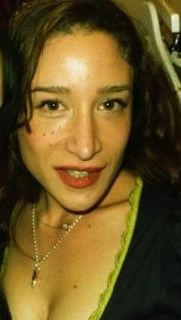A Quote by Robert Fripp
Related Quotes
We wake up and go to sleep with ourselves every single day. We see ourselves in the mirror from every angle. We know what we look like. We know what makes us happy about our bodies and what upsets us. And we don't need to value the opinions of others at all - especially from people who that we don't even know, or that we don't care about.
The remarkable thing is that we really love our neighbor as ourselves: we do unto others as we do unto ourselves. We hate others when we hate ourselves. We are tolerant toward others when we tolerate ourselves. We forgive others when we forgive ourselves. We are prone to sacrifice others when we are ready to sacrifice ourselves.
The more isolated and disconnected we are, the more shattered and distorted our self-identity. We are not healthy when we are alone. We find ourselves when we connect to others. Without community we don't know who we are... When we live outside of healthy community, we not only lose others. We lose ourselves...Who we understand ourselves to be is dramatically affected for better or worse by those we hold closest to us.
If we don't love ourselves, we would not love others. When someone tell you to love others first, and to love others more than ourselves; it is impossible. If you can't love yourselves, you can't love anybody else. Therefore we must gather up our great power so that we know in what ways we are good, what special abilities we have, what wisdom, what kind of talent we have, and how big our love is. When we can recognize our virtues, we can learn how to love others.
The choice to follow love through to its completion is the choice to seek completion within ourselves. The point at which we shut down on others is the point at which we shut down on life. We heal as we heal others, and we heal others by extending our perceptions past their weaknesses. Until we have seen someone’s darkness, we don’t really know who that person is. Until we have forgiven someone’s darkness, we don’t really know what love is. Forgiving others is the only way to forgive ourselves, and forgiveness is our greatest need.
Before us lie two paths - honesty and dishonesty. The shortsighted embark on the dishonest path; the wise on the honest. For the wise know the truth; in helping others we help ourselves; and in hurting others we hurt ourselves. Character overshadows money, and trust rises above fame. Honesty is still the best policy.
At a certain point we need to grow up; we need to look inside ourselves for our inner guidance. There are things most human beings know; they just don't want to know them. They know deep down that certain things in their lives are working or aren't working, that certain parts of their lives are functional and others are dysfunctional. But sometimes, as human beings, we don't want to know what's not convenient. So we pretend not to know.



































